 I once had a discussion with a fellow British blogger who is studying Economics in London. He argued that for a state economy to be productive, free enterprise is the way to go. I argued that it is the duty of the State to look after its people and to regulate the economy to ensure prosperity for all.
I once had a discussion with a fellow British blogger who is studying Economics in London. He argued that for a state economy to be productive, free enterprise is the way to go. I argued that it is the duty of the State to look after its people and to regulate the economy to ensure prosperity for all.
Capitalism is well and good for individuals who have capital to begin with, and when the majority of the populace are of equal socio-economic status. But what about the little guy, the salary-man who survives day-to-day, whose livelihood, take-home pay and means of survival are at the whim of enterprise? When there is a gap between the rich and poor, the inequality raises serious social, political and economic issues.
Let’s say that these same salary-men place their savings in stocks and bonds, touted as good investments. Let’s say they also invest in a home, tied to a bank mortgage. They hope that by joining the bandwagon, they would make a profit off the volatile caprices of the market, traders gambling on a bet that the market would go this way or that.
Then the whole arrangement collapses. Who is now asked to step in, but told to keep out when the wolves were at the slaughter? Who is now asked to do something to save the traders who most profited by paying themselves appallingly huge salaries? Disgustingly huge salaries for a job that supposedly they had the know-how of, to wisely invest hard-earned money for a profit. It now appears that the Government will use taxpayers’ money to bail out banks and investment houses. All that hard-earned money gone to pay enormous bonuses and salaries, and empty pockets for the investors.
Now Capitalism is asked to step aside and Socialism to come in to salvage what little there is left to salvage in a financial crisis that capitalism has no means to solve.
Lehman Bros head took home $300m in pay and bonuses
How the financial turmoil affects you
• Capitalism: an economic and political system in which a country’s trade and industry are controlled by private owners for profit, rather than by the state.
• Socialism: a political and economic theory of social organization that advocates that the means of production, distribution, and exchange should be owned or regulated by the community as a whole
• Betraying the Spirit of Capitalism, by Nicolas Sarkozy: An unprecedented crisis of confidence is rocking the global economy. Major financial institutions are threatened, millions of small savers in the world who have invested their savings on the stock market are seeing them melt away, day after day, millions of pensioners who contributed to pension funds fear for their retirement, millions of modest households are being put in a difficult position by the rise in prices.
Basically, a certain idea of globalization is biting the dust with the end of a financial capitalism which had imposed its rationale on the whole economy and contributed to corrupting it. The idea of the all-powerful market which wasn’t to be impeded by any rules or political intervention was a mad one. The idea that the markets are always right was mad.
For several decades we created conditions in which industry operated with the aim of achieving short-term profitability. The growing risks people were forced to take to obtain increasingly exorbitant profits were concealed.
Remuneration systems were put in place which drove dealers to take more and more absolutely reckless risks. Banks were allowed to speculate on the markets instead of doing their job which is mobilize savings for economic development and analyzing the credit risk.
The speculator rather than the entrepreneur was financed.
… The current crisis must prompt us to build capitalism on a new sounder foundation, base it on an effort and work ethic; it must prompt us to restore a balance between the necessary freedom and regulation, between collective and individual responsibility. We must find a new balance between the State and the market when public authorities the world over are being compelled to intervene to save the banking system from collapse. A new relationship must be established between the economy and politics through the development of new regulations.
Self-regulation as a way of resolving all problems is finished. Laissez-faire is finished. The all-powerful market which is always right is finished. We must learn the lessons from the crisis so that it doesn’t reoccur. We have just been a fingertip away from disaster and we can’t take the risk of it happening again.
If we want to rebuild a viable financial system, raising the moral standards of financial capitalism is a priority. I have no hesitation in saying that from now on there must be a limit on the remuneration of executives and dealers. There have been too many excesses; there have been too many scandals. So either the financial industry agrees on acceptable practices or the government of the Republic will settle the problem through legislation before the year is out.
The remuneration of executives must be indexed to the business’s actual economic performance. They must not be able to claim a golden parachute when they have committed errors or caused their businesses huge problems. And if the executives have a stake in the company’s performance, which is a good thing, its other employees, particularly the lowest-paid, must too. If the executives have stock options, the other employees must also have them or, failing that, benefit from a profit-sharing system.
We have to find out where the blame lies and those responsible for this collapse must at least pay some financial penalty. …
— Betraying the Spirit of Capitalism, by Nicolas Sarkozy (excerpts from his speech on 25 September 2008), published on ABS-CBN News on 10/9/2008 by Dennis Gaviola
——–
Sign the petition: Buy In — Not Bail Out: To world leaders: As citizens, we call for a global public “buy-in” to tackle the financial meltdown, instead of a “bail-out” of reckless bankers. We urge you to agree on a bold public rescue package without further delay – taking stakes in the banks, fixing failings, and mobilising public investment to benefit the many not the few.
———
Staff at six banks set for huge bonuses: Financial workers at Wall Street’s top banks are to receive pay deals worth more than $70bn (£40bn), a substantial proportion of which is expected to be paid in discretionary bonuses, for their work so far this year – despite plunging the global financial system into its worst crisis since the 1929 stock market crash….
 I just got back from seeing the photography exhibit by Ahn Sehong of Korean women who were used as sex slaves by the Japanese military, and were dumped on some barren field in China to fend off for themselves. Now in their 80’s and 90’s, Ahn Sehdong has captured their poverty and their sorrows in black-and-white images.
I just got back from seeing the photography exhibit by Ahn Sehong of Korean women who were used as sex slaves by the Japanese military, and were dumped on some barren field in China to fend off for themselves. Now in their 80’s and 90’s, Ahn Sehdong has captured their poverty and their sorrows in black-and-white images.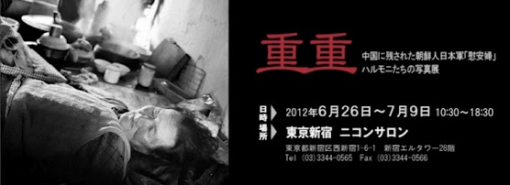
 Sixty-seven thousand five hundred tons — that is the amount of radioactive water at the Fukushima nuclear plant that somehow needs to be gotten rid of. As I understand it, this huge amount of radioactive water is located in the basements, hindering the engineers from getting to the generators (also located in the basements), that they would need to re-start in order to cool down the reactors. The TEPCO engineers have not been able to access the cooling systems since March 11, the day of the catastrophic earthquake and tsunami.
Sixty-seven thousand five hundred tons — that is the amount of radioactive water at the Fukushima nuclear plant that somehow needs to be gotten rid of. As I understand it, this huge amount of radioactive water is located in the basements, hindering the engineers from getting to the generators (also located in the basements), that they would need to re-start in order to cool down the reactors. The TEPCO engineers have not been able to access the cooling systems since March 11, the day of the catastrophic earthquake and tsunami. Among all the Westerners in Japan, none were so unusually alarmed by the earthquake/tsunami/nuclear reactor crisis than the French community in Tokyo. The first communique from the French Embassy reassured the people, telling them that the Japanese authorities have the situation in hand.
Among all the Westerners in Japan, none were so unusually alarmed by the earthquake/tsunami/nuclear reactor crisis than the French community in Tokyo. The first communique from the French Embassy reassured the people, telling them that the Japanese authorities have the situation in hand.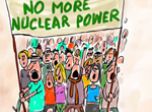
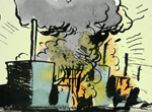
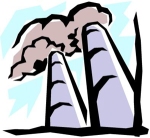 There is no way an agreement can be reached between parties involved (the environmentally-minded public versus industry and governments), that would satisfy the concerns of both during Climate talks. The public will never be satisfied with low quotas, neither will industries agree to limiting factory outputs, nor governments allow national economies to struggle.
There is no way an agreement can be reached between parties involved (the environmentally-minded public versus industry and governments), that would satisfy the concerns of both during Climate talks. The public will never be satisfied with low quotas, neither will industries agree to limiting factory outputs, nor governments allow national economies to struggle. When we shall look back at history, we will all be able to say with conviction that Bush has effectively destroyed America’s goodwill with the rest of the world. Now America will choose a new leader, and between Obama and McCain, Obama would be the better President. He is far more intelligent, and far more likely to make wise decisions than his rival. McCain is a walking warmonger and fearmonger, itching for confrontation.
When we shall look back at history, we will all be able to say with conviction that Bush has effectively destroyed America’s goodwill with the rest of the world. Now America will choose a new leader, and between Obama and McCain, Obama would be the better President. He is far more intelligent, and far more likely to make wise decisions than his rival. McCain is a walking warmonger and fearmonger, itching for confrontation. I once had a discussion with a fellow British blogger who is studying Economics in London. He argued that for a state economy to be productive, free enterprise is the way to go. I argued that it is the duty of the State to look after its people and to regulate the economy to ensure prosperity for all.
I once had a discussion with a fellow British blogger who is studying Economics in London. He argued that for a state economy to be productive, free enterprise is the way to go. I argued that it is the duty of the State to look after its people and to regulate the economy to ensure prosperity for all. 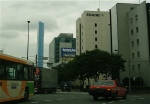 Less than three years after arriving in Japan, I developed an endocrine problem which caused my health to deteriorate. Through the years, I’ve had friends and acquaintances who have developed serious health problems, many of whom have died from cancer. I wondered why.
Less than three years after arriving in Japan, I developed an endocrine problem which caused my health to deteriorate. Through the years, I’ve had friends and acquaintances who have developed serious health problems, many of whom have died from cancer. I wondered why.


